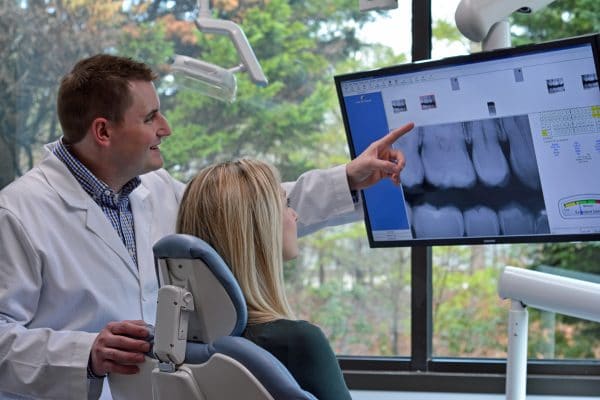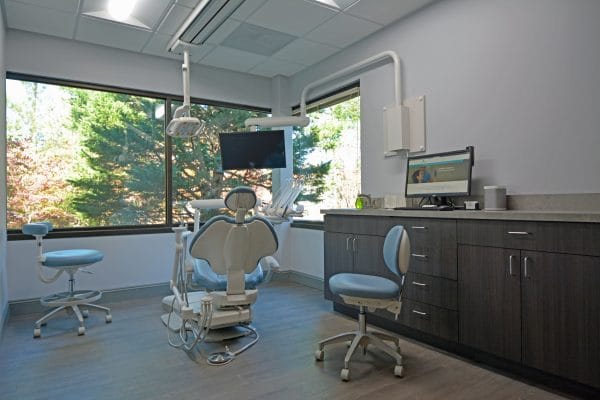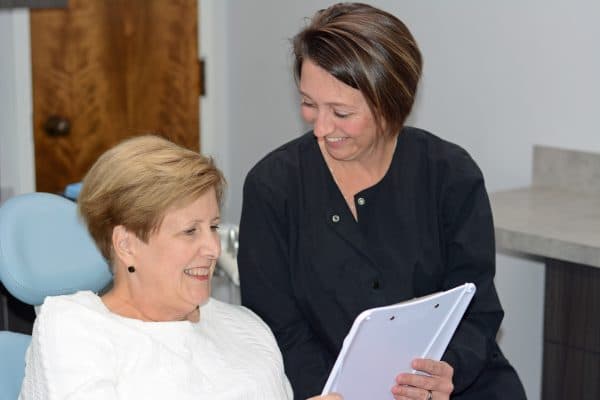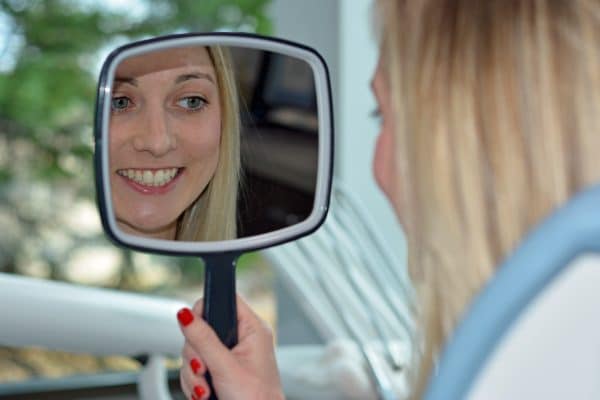Tooth Extraction & Removal Chapel Hill
fall in love with your smile
Tooth Extraction for Problem Teeth
Although preserving your natural teeth is our primary goal, there are times when a tooth extraction is in the best interests of our patients. Tooth extraction may be recommended to address a variety of issues, such as periodontal disease, tooth decay that has progressed to extreme degrees, or a tooth that is irreparably broken. A tooth extraction is also commonly performed for the removal of patient’s wisdom teeth and can also be done in conjunction with additional orthodontic treatments.
Common reasons to have a tooth extracted are detailed below. If you have additional questions concerning tooth extraction, please contact our office and we will be happy to answer your questions.
If you would like to schedule an appointment or if you have any questions about our treatment options, please contact our office at (919) 595-1010. We look forward to creating the smile you have always desired a reality for you.
Wisdom Teeth Removal for Oral Health
While the aforementioned reasons for tooth extraction can occur for a variety of reasons, one of the most common preemptive types of tooth extractions performed is the removal of wisdom teeth.
Wisdom teeth generally appear between the ages of 17-25. Though not always necessary, it is generally considered best practice to have wisdom teeth removed, as the presence of wisdom teeth can create oral issues, such as infection, crowding, the formation of a cyst, or damage to adjacent teeth. They are also difficult to clean and can result in infections as you age.
Tooth Extraction Candidates
A tooth extraction may be necessary or heavily suggested under the following circumstances:
- Patients have extreme decay or have experienced significant trauma: If an accident occurs or significant decay has developed and your dentist is not able to repair the tooth through traditional measures (such as a dental filling or a dental crown), your dentist may have no choice but to extract the damaged tooth to prevent additional damage from occurring to the surrounding teeth
- Infection: When the pulp of the tooth becomes infected, a root canal is generally able to be addressed through a root canal procedure. If the infection has developed beyond the capacity of a root canal to address, then the tooth will likely need to be extracted to save the patient from enduring additional pain and prevent the infection from spreading to your jawbone
- Periodontal Disease: Periodontal disease is one of the leading causes of tooth loss. Periodontal disease occurs when the gums begin to detach from the teeth due to inflammation, which results in the creating of pockets that can easily become infected. If left untreated long enough, your teeth will loosen to the point where they will need to be extracted to relieve you of the pain associated with their compromised state.
Tooth Extraction Process
Most tooth extractions, including wisdom teeth removal, will begin with administration of an anesthetic and/or dental sedation. Once the area is properly numbed, the extraction process can begin.
If you are having wisdom teeth removed, the extraction process will involve your dentist opening the gum tissue directly above the tooth. Once this incision has been made, the tooth will either be extracted using specialty tools, or if the tooth is too large, it will be cut into smaller pieces and removed piece by piece.
Following the extraction of your tooth, your dentist will likely use stitches to close the wound. These stitches will typically dissolve within three to five days.
After the tooth or teeth have been extracted and the effects of the anesthesia have faded, you will be allowed to leave, provided you have someone who can drive you home. You will also likely be prescribed antibiotics and/or pain medication. Be certain to follow the recommended dosage while you are recovering.
Proper Care Can Prevent Tooth Extractions
Following your tooth extraction, you will likely benefit from following a soft food diet until the area where the extraction has occurred has fully healed. Although not always avoidable, there are steps you can take to avoid developing issues that will result in the need for a tooth extraction. Be sure to practice these important oral hygiene habits every day.
- Brush twice daily (minimum) and practice proper brushing technique. In addition to brushing regularly, it is also important to brush effectively. Our staff will be happy to answer any questions you may have about proper brushing techniques.
- Floss daily. If you are someone who tends to avoid flossing, you may want to consider flossing alternatives, such as interdental brushes or floss picks.
- Be mindful of your diet. One of the best ways you can prevent dental issues from developing is to avoid foods that are sugary or high in starch. If you do drink soda or sugary beverages, try to use a straw to limit exposure of sugar to your teeth. It is also important to swish your mouth with water following meals, as doing so can dislodge food remnants, which, if left alone can create future tooth decay.
- Schedule regular dental exams. Unchecked dental issues can result in additional issues and progression of decay, which is why it is so important to visit your dentist every six months. In addition to providing a deep clean for your teeth and diagnosing potential issues before they progress, these regular checkups also allow your dentist to monitor the status of your tooth extraction.





High-Quality Dental Care
At Cornerstone Family Dentistry in Chapel Hill, all our services are performed with the patient in mind. We want you to feel comfortable in the dental chair, confident in our work, and most importantly, we want you to fall in love with your smile again. If you would like to schedule an appointment or if you have any questions about cosmetic procedures that we offer, please contact us at (919) 595-1010.
